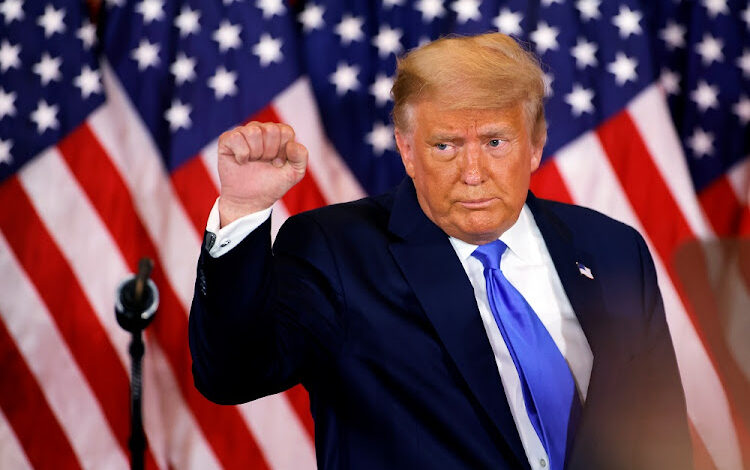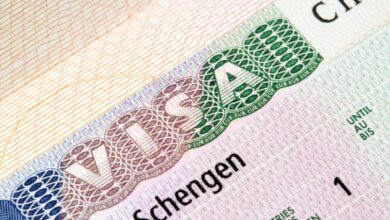AU expresses concern over impact of Trump’s travel ban, says measure affects US-Africa diplomatic relations

The African Union has said it is concerned about the consequences of a new travel ban imposed by the United States on seven nations on the continent.
This was contained in a statement posted on the organisation’s website on Thursday
According to the AU, the US decision should have been taken “in a manner that is balanced, evidence-based, and reflective of the long-standing partnership between the United States and Africa.”
The statement went further to state, “The Commission remains concerned about the potential negative impact of such measures on people-to-people ties, educational exchange, commercial engagement, and the broader diplomatic relations that have been carefully nurtured over decades. Africa and the United States share mutual interests in promoting peace, prosperity, and global cooperation.”
The AU also appealed to the U.S. to consider adopting a more consultative approach and to engage in constructive dialogue with the countries concerned. “The Commission appeals for transparent communication, and where necessary, collaborative efforts to address any underlying issues that may have informed this decision,” the statement said.
The Commission said it stands ready to support efforts that promote understanding, resolve concerns, and strengthen cooperation between Africa and the United States.
Back story
U.S. President Donald Trump announced a travel restriction policy imposing a ban on citizens of 12 countries from entering the United States.
In addition to this, visitors from seven other nations will face heightened entry restrictions.
The new measures are to prevent the sudden airport disruptions witnessed during a similar 2017 ban.
In an official White House statement, Trump laid out the reasons for the new travel ban, pointing to the exploitation of the U.S. visa system by some countries.
“Many of these countries have also taken advantage of the United States in their exploitation of our visa system and their historic failure to accept back their removable nationals.
“As President, I must act to protect the national security and national interest of the United States and its people,” he stated
He also expressed openness to working with countries willing to improve security cooperation.
“I remain committed to engaging with those countries willing to cooperate to improve information-sharing and identity-management procedures, and to address both terrorism-related and public-safety risks,” he said.
The 12 countries whose citizens are banned outright include:
- Afghanistan: Controlled by the Taliban (a designated terrorist group), Afghanistan lacks a reliable central authority for passports and vetting. It has high visa overstay rates — nearly 10% for tourists and over 29% for students and exchange visitors.
- Burma (Myanmar): Burma shows very high visa overstay rates (27% for tourists, over 42% for students) and has historically not cooperated with the U.S. on accepting back removable nationals.
- Chad: Chad has one of the highest overstay rates, with nearly 50% for tourists and over 55% for students, showing disregard for U.S. immigration laws.
- Republic of the Congo: Overstay rates are also high here — nearly 30% for tourists and 35% for students.
- Equatorial Guinea: Notable for very high student visa overstays at over 70%, and almost 22% for tourists.
- Eritrea: The U.S. questions Eritrea’s passport authority’s competence. It refuses to accept deportees and has high overstay rates (20% tourists, 55% students).
- Haiti: Haiti has high overstay rates (31% tourists, 25% students) and an influx of illegal migrants, raising concerns about crime and national security. It lacks a strong law enforcement system.
- Iran: A known state sponsor of terrorism, Iran fails to cooperate on security and refuses to accept deported nationals.
- Libya: Libya lacks a competent passport authority and has a history of terrorist presence, raising security risks.
- Somalia: Somalia lacks government control and passport systems, is a terrorist safe haven, refuses deportees, and faces ongoing terrorism threats.
- Sudan: Sudan lacks proper passport and vetting systems and has high visa overstay rates (26% tourists, 28% students).
- Yemen: Yemen lacks passport authority, government control, and is currently a U.S. military operation zone.
What you should know
This ban is a revival of Trump’s 2017 travel ban, which barred entry to citizens from seven mostly Muslim countries and faced multiple legal challenges before being upheld by the Supreme Court in 2018.
The current ban expands the list based on updated security reviews and visa overstay data.








